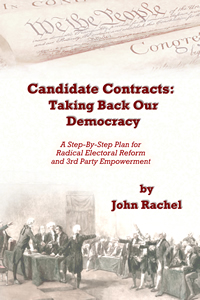 Can you imagine? Many ancient cities and monuments were built by dragging enormous blocks of stone on sleds. It took hundreds of slaves to move giant boulders and huge slabs of cut rock into position.
Can you imagine? Many ancient cities and monuments were built by dragging enormous blocks of stone on sleds. It took hundreds of slaves to move giant boulders and huge slabs of cut rock into position.
Then someone suggested putting logs under the sleds, permitting a reduced number of slaves to push the incredibly heavy pieces along, or the same number of slaves to move the load much more quickly. This also allowed transporting even more monstrous blocks of cut stone and other bulky components. Some of the great wonders of the world came out of this simple suggestion, which seems obvious to us now.
Who thought of that? Some inventive member of the royal court? Maybe one of the slave foremen who was trying to score some points with the king?
Who subsequently made the astonishing mental leap to create the wheel? To make a large disk, drill a hole in the center, mount it on a long shaft attached to the “sled”?
Was it some cosmic thinker?
Maybe it was a slave who thought it might be his ticket to freedom. You can imagine him getting 50 lashes for dilly-dallying, drawing his theory for revolutionizing transportation for the entire future of mankind, in the sand with a stick . . .
“Listen, I have this idea for making . . . Ow! . . . Damn! That really hurts! . . . It’s just a theory but . . . AAAAAH! . . .”
 My latest political book came out June 7. To put it mildly, it’s been an interesting couple months.
My latest political book came out June 7. To put it mildly, it’s been an interesting couple months.
I’ve sent out over 900 copies. The book is a step-by-step plan for radical electoral reform, designed specifically to address the pandemic corruption among our elected politicos. It outlines in detail a real alternative to the two-party monopoly which has crippled our system. These copies went to independent political candidates and campaign managers, party campaign strategists, political analysts, academicians, pundits, journalists, opinion makers, bloggers, across a wide diversity of institutions __ colleges and universities, think tanks, media outlets, local and national political organizations.
I can’t say the response is very encouraging.
Most people don’t have time or are simply not interested in something outside-the-box and paradigm-shifting. Big ideas are the stuff of lunatics or delusionals. Everyone knows that change crawls along like a turtle and the hares should be put on Ritalin.
One moderately famous activist __ most progressives would know him, as he is involved in a lot of grass roots work and is regularly published in the media outlets of the left __ while tearing me a new anal sphincter, pointed out all of the ridiculous flaws and dead ends he could see in my worthless ideas. In a series of several long emails, he demolished my plan point-by-point, taking down one idea after another, condemning it all as just more of the same stuff that he typically finds in “these kinds of books”.
Of course, none of the ideas he so devastatingly ripped to shreds actually appeared in my book. He had clearly not read it, or any portion of it. The ideas he found easy to dismiss were the ones he assumed were there, I guess by looking at the title and the book cover.
When I pointed this out to him, I was accused of being obnoxious and too sensitive to criticism. The capper was accusing me in no uncertain terms of being out-of-control, hysterical, and going ballistic.
Granted, I’m not by any stretch a master of diplomacy. But I didn’t think that telling him that he might want to actually read the book before wasting any more of his or my time carrying on about how worthless it was, would be considered unreasonable or impolitic.
He concluded six very long, detailed emails by saying whatever the particulars of my strategy might be, it was “just a theory”.
Just a theory?
What is that supposed to mean?
A theory.
You mean like drilling a hole in a large disk, mounting it on an axle?
Am I comparing my approach to electoral reform to something as profound and truly history-shaping as the invention of the wheel?
Of course not. Maybe I’m more like the guy at the bottom of a lake who suggested making boats out of concrete instead of wood.
But . . .
How will we ever know if we don’t try?
How will we see any progress if we don’t look at new ideas, fresh approaches?
How does anyone new get heard when “established” experts go off like a cluster bomb when anyone encroaches on the staked-out territory of their self-proclaimed expertise?
Having said that . . . let me finish on a more positive note.
Other than a few very negative responses like the one I just described, and the 99% of those 900+ who didn’t respond at all, I did get some encouragement.
I’m not a name-dropper, so I’m not going to give you names.
But a very well-known government whistle-blower, certainly famous in circles of people concerned about the errant ways of the CIA and NSA on torture and spying, read my book cover-to-cover and said this:
“It is absolutely outstanding — a public service, really. You made it analytic, yet easy to understand, logical, and convincing. Well done.”
Another individual whose name the vast majority of Americans would know, who is widely respected as a progressive fighter and a fierce advocate for peace, a gentleman who served his country for most of his life, and has even run for president, called me from Washington DC and we talked for twenty minutes. He said my ideas were promising, that the kind of creative and unique thinking I brought to the difficult challenges of electoral reform and restoring representative democracy, were quite welcome and certainly valuable. He said that typically now, many established thinkers were locked into methodologies that didn’t work. Dramatic change would only come from dramatic and bold new ideas.
I’m not going to pretend it didn’t feel good to get some positive feedback, especially from two individuals who I respect and admire on a lot of different levels.
At the same time __ and I sincerely mean this __ a nice pat on the back is not what I’m looking for. Approval is great but it’s not what drives me to do the enormous amount of work that goes into a book like this, or even writing my political blogs and magazine articles. There’s much more:
I’d like to see some serious changes in both the way we see things and the way government does things.
I’d like to see people become inspired again to get involved, particularly young people who mostly don’t vote or believe that politics is worth their time and attention.
I’d like to see the cynicism about the potential for change to be replaced with genuine hope and a positive vision for the future.
I’d like to make a constructive and enduring contribution to discussions and debates, be one of the voices which injects energy and fresh ideas into the national conversation.
But then I am sometimes prompted to ask . . . what national conversation?
It seems like everyone is talking. No one is listening.
Is citizen engagement possible when so many of those we look to for leadership themselves are not engaged?
Is it possible for groups of people working together __ and there are many phenomenal, highly motivated activist organizations these days doing their best, trying to get America back on track, attempting to shape a better future for themselves and generations to come __ to force our leaders to change their ways?
Is it possible for one citizen to make a difference anymore?
Or is that just a theory?




Just a theory . . .
Then someone suggested putting logs under the sleds, permitting a reduced number of slaves to push the incredibly heavy pieces along, or the same number of slaves to move the load much more quickly. This also allowed transporting even more monstrous blocks of cut stone and other bulky components. Some of the great wonders of the world came out of this simple suggestion, which seems obvious to us now.
Who thought of that? Some inventive member of the royal court? Maybe one of the slave foremen who was trying to score some points with the king?
Who subsequently made the astonishing mental leap to create the wheel? To make a large disk, drill a hole in the center, mount it on a long shaft attached to the “sled”?
Was it some cosmic thinker?
Maybe it was a slave who thought it might be his ticket to freedom. You can imagine him getting 50 lashes for dilly-dallying, drawing his theory for revolutionizing transportation for the entire future of mankind, in the sand with a stick . . .
“Listen, I have this idea for making . . . Ow! . . . Damn! That really hurts! . . . It’s just a theory but . . . AAAAAH! . . .”
I’ve sent out over 900 copies. The book is a step-by-step plan for radical electoral reform, designed specifically to address the pandemic corruption among our elected politicos. It outlines in detail a real alternative to the two-party monopoly which has crippled our system. These copies went to independent political candidates and campaign managers, party campaign strategists, political analysts, academicians, pundits, journalists, opinion makers, bloggers, across a wide diversity of institutions __ colleges and universities, think tanks, media outlets, local and national political organizations.
I can’t say the response is very encouraging.
Most people don’t have time or are simply not interested in something outside-the-box and paradigm-shifting. Big ideas are the stuff of lunatics or delusionals. Everyone knows that change crawls along like a turtle and the hares should be put on Ritalin.
One moderately famous activist __ most progressives would know him, as he is involved in a lot of grass roots work and is regularly published in the media outlets of the left __ while tearing me a new anal sphincter, pointed out all of the ridiculous flaws and dead ends he could see in my worthless ideas. In a series of several long emails, he demolished my plan point-by-point, taking down one idea after another, condemning it all as just more of the same stuff that he typically finds in “these kinds of books”.
Of course, none of the ideas he so devastatingly ripped to shreds actually appeared in my book. He had clearly not read it, or any portion of it. The ideas he found easy to dismiss were the ones he assumed were there, I guess by looking at the title and the book cover.
When I pointed this out to him, I was accused of being obnoxious and too sensitive to criticism. The capper was accusing me in no uncertain terms of being out-of-control, hysterical, and going ballistic.
Granted, I’m not by any stretch a master of diplomacy. But I didn’t think that telling him that he might want to actually read the book before wasting any more of his or my time carrying on about how worthless it was, would be considered unreasonable or impolitic.
He concluded six very long, detailed emails by saying whatever the particulars of my strategy might be, it was “just a theory”.
Just a theory?
What is that supposed to mean?
A theory.
You mean like drilling a hole in a large disk, mounting it on an axle?
Am I comparing my approach to electoral reform to something as profound and truly history-shaping as the invention of the wheel?
Of course not. Maybe I’m more like the guy at the bottom of a lake who suggested making boats out of concrete instead of wood.
But . . .
How will we ever know if we don’t try?
How will we see any progress if we don’t look at new ideas, fresh approaches?
How does anyone new get heard when “established” experts go off like a cluster bomb when anyone encroaches on the staked-out territory of their self-proclaimed expertise?
Having said that . . . let me finish on a more positive note.
Other than a few very negative responses like the one I just described, and the 99% of those 900+ who didn’t respond at all, I did get some encouragement.
I’m not a name-dropper, so I’m not going to give you names.
But a very well-known government whistle-blower, certainly famous in circles of people concerned about the errant ways of the CIA and NSA on torture and spying, read my book cover-to-cover and said this:
“It is absolutely outstanding — a public service, really. You made it analytic, yet easy to understand, logical, and convincing. Well done.”
Another individual whose name the vast majority of Americans would know, who is widely respected as a progressive fighter and a fierce advocate for peace, a gentleman who served his country for most of his life, and has even run for president, called me from Washington DC and we talked for twenty minutes. He said my ideas were promising, that the kind of creative and unique thinking I brought to the difficult challenges of electoral reform and restoring representative democracy, were quite welcome and certainly valuable. He said that typically now, many established thinkers were locked into methodologies that didn’t work. Dramatic change would only come from dramatic and bold new ideas.
I’m not going to pretend it didn’t feel good to get some positive feedback, especially from two individuals who I respect and admire on a lot of different levels.
At the same time __ and I sincerely mean this __ a nice pat on the back is not what I’m looking for. Approval is great but it’s not what drives me to do the enormous amount of work that goes into a book like this, or even writing my political blogs and magazine articles. There’s much more:
I’d like to see some serious changes in both the way we see things and the way government does things.
I’d like to see people become inspired again to get involved, particularly young people who mostly don’t vote or believe that politics is worth their time and attention.
I’d like to see the cynicism about the potential for change to be replaced with genuine hope and a positive vision for the future.
I’d like to make a constructive and enduring contribution to discussions and debates, be one of the voices which injects energy and fresh ideas into the national conversation.
But then I am sometimes prompted to ask . . . what national conversation?
It seems like everyone is talking. No one is listening.
Is citizen engagement possible when so many of those we look to for leadership themselves are not engaged?
Is it possible for groups of people working together __ and there are many phenomenal, highly motivated activist organizations these days doing their best, trying to get America back on track, attempting to shape a better future for themselves and generations to come __ to force our leaders to change their ways?
Is it possible for one citizen to make a difference anymore?
Or is that just a theory?